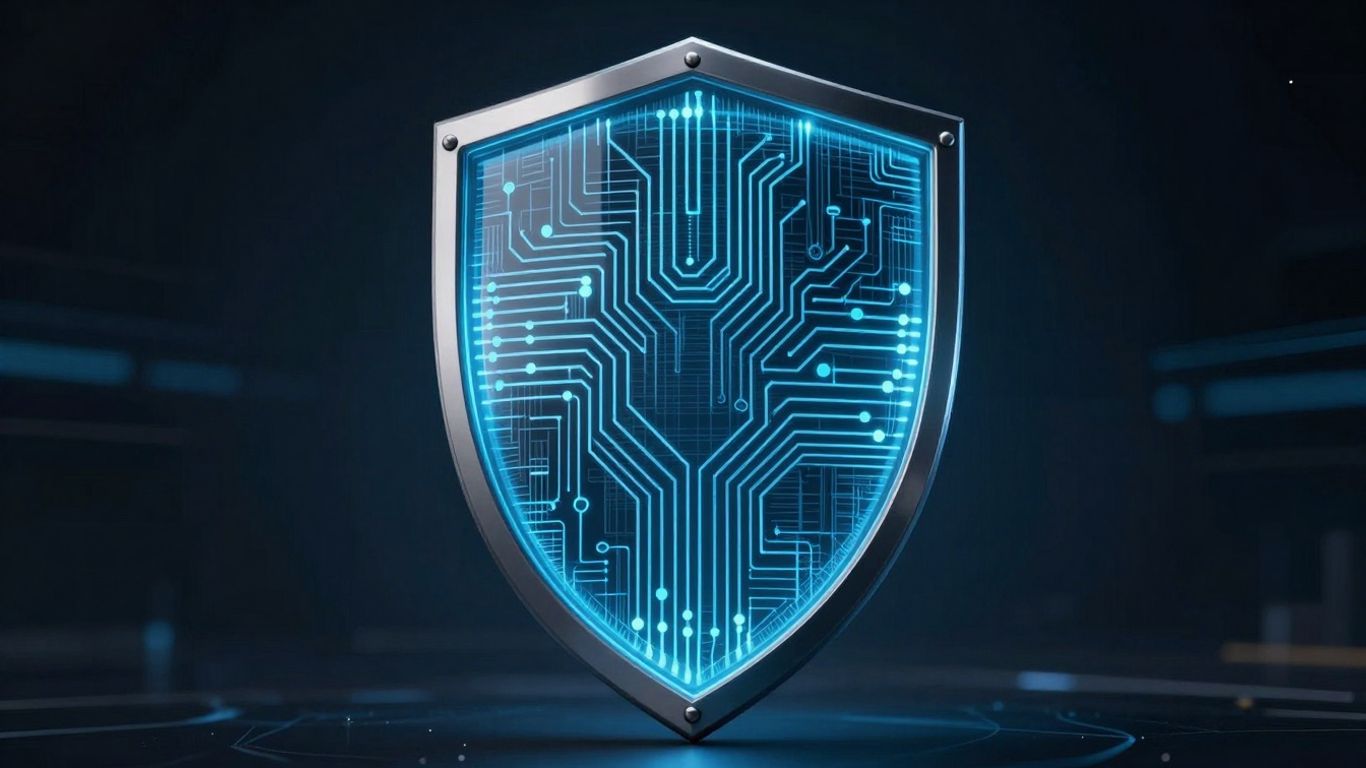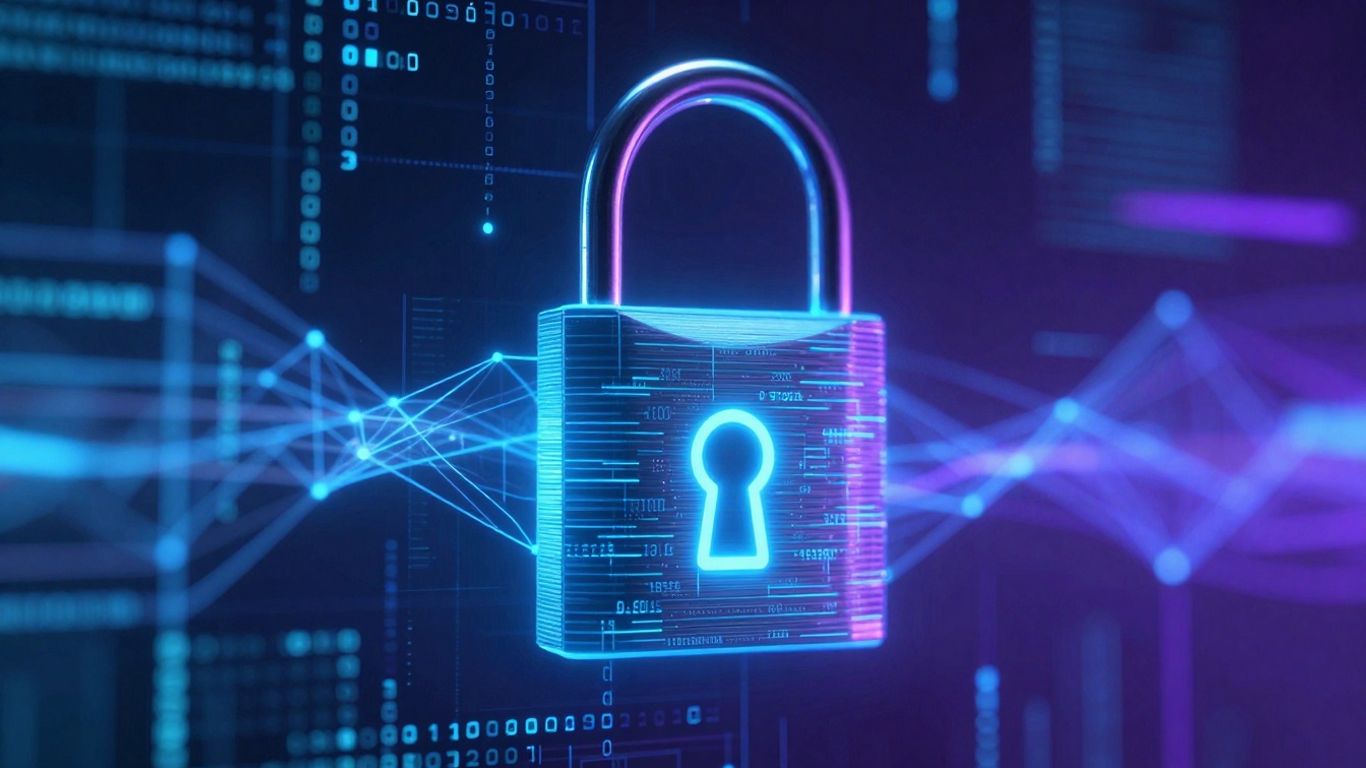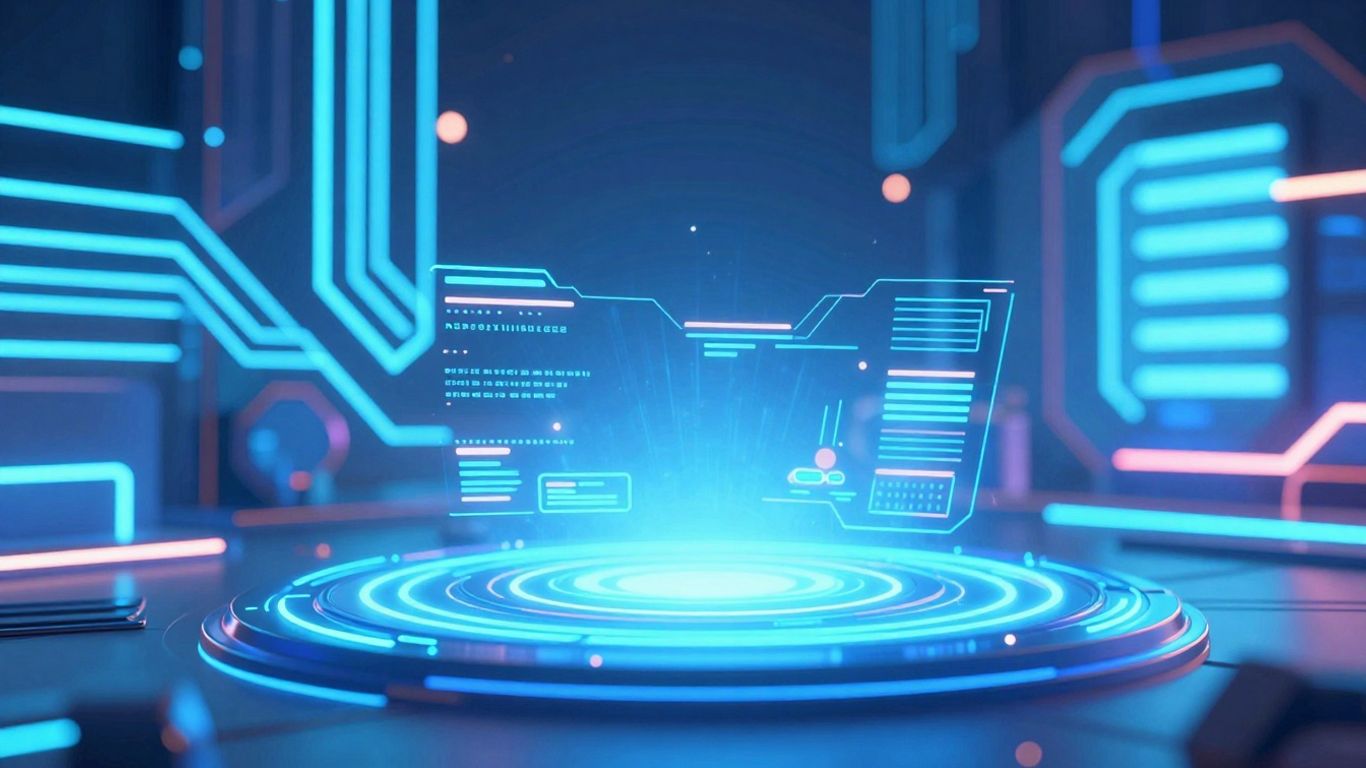[ newsletter ]
Stay ahead of Web3 threats—subscribe to our newsletter for the latest in blockchain security insights and updates.
Thank you! Your submission has been received!
Oops! Something went wrong. Please try again.
Explore AI-powered deep security audits combined with expert review for enhanced blockchain security. Discover faster, more accurate, and cost-effective solutions.





The world of digital security is constantly changing, and keeping up with it can feel like a full-time job. For projects built on blockchain, this is especially true. Security isn't just a nice-to-have; it's everything. That's where the idea of a deep security audit comes in. We're talking about going beyond the surface to really make sure everything is locked down tight. This article looks at how new technology, like AI, is changing the game for deep security audits, and how combining it with human smarts makes for an even stronger defense.

Security audits used to be a pretty straightforward affair. You'd get a team in, they'd poke around your systems, write up a report, and you'd hopefully fix whatever they found. It was like a yearly check-up for your digital house. But let's be real, the digital world isn't standing still, is it? Threats are getting smarter, faster, and way more sneaky. This means our old ways of checking security just aren't cutting it anymore.
Think about it: traditional audits are often done manually, which means they're slow. Really slow. And because they're manual, they can miss things. Humans get tired, they have blind spots, and sometimes, they just don't have the sheer processing power to sift through mountains of code or network traffic. Plus, these audits are usually a snapshot in time. They tell you what your security looked like on audit day, but what about the next day, or the day after that? Attackers don't wait for your next scheduled audit, you know.
The sheer complexity of modern IT environments, with cloud services, IoT devices, and remote workforces, makes it incredibly easy for small oversights to become major security holes. Traditional methods struggle to keep pace with this sprawl.
This is where Artificial Intelligence starts to look like a game-changer. AI can process information at speeds and scales that humans simply can't match. It can spot patterns in data that would be invisible to the naked eye. We're seeing AI tools pop up that can analyze code, predict threats, and even help automate the fixing process. It's not about replacing human auditors entirely, but about giving them superpowers. Think of it as having a super-fast, super-observant assistant who never sleeps. The Trend Micro report really highlights how AI is a double-edged sword here, making businesses more efficient but also arming cybercriminals with new tricks.
So, what exactly is a
Artificial intelligence is changing how we look at security audits. It's not just about finding bugs anymore; AI tools can do a lot more, making the whole process faster and more thorough. Think of it as having a super-smart assistant that can sift through code and data way quicker than any human.
Imagine a team of AI agents, each with a specific job, working together to check smart contract code. These agents can look for common mistakes, check if the code follows all the rules, and even suggest ways to fix problems they find. They work around the clock, so your code is always being watched. This is a big step up from just running a single scan; it's like having a dedicated security team that never sleeps.
AI can look at patterns in data, both from past attacks and current trends, to guess what threats might pop up next. It's like having a crystal ball for security. By spotting potential risks before they become real problems, teams can get ahead of attackers. This means less reacting to breaches and more proactive defense.
One of the most exciting parts is how AI can find vulnerabilities as they're happening and even help fix them on the spot. Instead of waiting for a full audit report, issues can be flagged and addressed almost immediately. This speeds things up a lot, especially when you're trying to get a project out the door quickly. It's a game-changer for keeping systems secure in a fast-moving environment.
AI tools can help auditors by spotting patterns and anomalies that might be missed by human eyes. However, it's important to remember that AI is a tool, not a replacement for human judgment. The final decisions and understanding still rest with the security experts.
While AI is fantastic at sifting through mountains of code and spotting patterns, it's not quite ready to fly solo on critical security audits. Think of AI as a super-powered intern – it can do a lot of the heavy lifting, but it still needs a seasoned pro to look over its shoulder. That's where human experts come in, bringing a level of insight that machines just can't replicate yet.
It's not really an either/or situation. The best approach combines the speed and scale of AI with the nuanced judgment of human auditors. AI can flag potential issues at a speed and volume that's impossible for humans alone. It can scan millions of lines of code, identify known vulnerability patterns, and even predict potential threats based on historical data. However, AI can sometimes get tripped up by novel attack vectors or context-specific logic flaws that a human auditor, with years of experience, would immediately recognize. This partnership means we get the best of both worlds: broad coverage and deep, critical thinking.
Once the AI has done its initial sweep, human auditors step in to verify its findings. This is super important. The AI might flag something as a potential vulnerability, but a human expert can determine if it's a true risk or a false positive. They can dig into the context of the code, understand the business logic, and assess the actual impact of the flagged issue. This manual validation step is what separates a superficial scan from a truly deep security audit. It's like having a doctor use an X-ray (AI) and then perform a physical examination (human review) to make a diagnosis.
This is where human auditors really shine. They can understand the bigger picture. For example, an AI might flag a piece of code for being slightly inefficient, but a human auditor can assess if that inefficiency poses a real security risk within the specific application's architecture. They can also identify vulnerabilities that arise from the interaction of different components, something that's often hard for AI to grasp. This kind of contextual understanding and nuanced judgment is what helps prevent costly mistakes and ensures that the security measures are truly robust. It's about more than just finding bugs; it's about understanding the system as a whole and how it might be attacked in the real world. For more on how this works in practice, you can look into automating blockchain audits.
The combination of AI's analytical power and human intuition creates a security auditing process that is both efficient and incredibly thorough. It's about building trust by making sure every potential weakness is examined from every angle, using the best tools and the sharpest minds available.
So, what actually goes into a top-notch deep security audit these days? It's not just about running a few automated checks and calling it a day. We're talking about a multi-layered approach that combines smart tech with sharp human minds. Think of it like building a fortress – you need strong walls, smart defenses, and watchful guards.
One size definitely doesn't fit all when it comes to security. Private audits mean the process is specifically designed for your project's unique needs. This isn't a cookie-cutter service. It involves a deep dive into your specific code, infrastructure, and potential weak spots. The auditors work closely with your team to understand your goals and the risks you're most concerned about. This tailored approach means you get a much more accurate picture of your security posture, rather than a generic report that might miss critical, project-specific issues. It’s about getting a security assessment that truly matches your needs.
Imagine having a digital badge that proves your project has passed a rigorous security check, and no one can fake it or transfer it away. That's essentially what soulbound audit tokens are. These are non-transferable tokens recorded on the blockchain. They act as a permanent, verifiable record of your audit. This is super useful for building trust with users and investors. It shows you've taken security seriously and have the on-chain proof to back it up. It’s a way to make audit results transparent and tamper-proof, which is a big deal in the decentralized world.
Security isn't a one-and-done deal. Threats evolve constantly, so your defenses need to keep up. A continuous monitoring architecture means that security checks aren't just happening during a single audit period. Instead, systems are in place to constantly watch for suspicious activity, new vulnerabilities, or changes that could introduce risks. This often involves automated systems and AI agents that are always on the lookout. It’s like having a security system that’s always active, not just when you expect trouble. This proactive stance helps catch issues early, often before they can be exploited, which is way better than reacting after a breach. This kind of setup is key for maintaining ongoing security.
The shift towards continuous monitoring reflects a fundamental change in how we approach security. It acknowledges that static defenses are no longer sufficient in a world where threats are dynamic and ever-present. By integrating constant vigilance into the architecture, organizations can move from a reactive posture to a truly proactive one, significantly reducing their attack surface and improving overall resilience.

So, why bother with AI in security audits? Well, it turns out there are some pretty big upsides. Think about it: traditional audits can take ages and cost a small fortune. AI steps in and changes the game, making things faster and way more affordable.
AI tools can sift through massive amounts of code and data in a fraction of the time it would take a human. This means audits that used to drag on for weeks or even months can now be completed in days or even hours. This speed is a game-changer, especially for projects that need to get to market quickly without compromising security.
Because AI can automate many of the repetitive and time-consuming tasks involved in auditing, the overall cost drops significantly. We're talking about potential savings of up to 90% compared to traditional methods. This makes professional-level security audits accessible to a much wider range of projects, including those just starting out that might not have huge budgets.
While it might seem counterintuitive, AI can actually improve accuracy. AI systems can be trained on vast datasets of known vulnerabilities and attack patterns, allowing them to spot issues that a human might miss, especially in complex code. They can also provide more consistent analysis across the board.
The combination of AI's speed and its ability to process vast amounts of data means that security audits can be more thorough and cover more ground than ever before. This doesn't replace human auditors, but it gives them a powerful tool to work with, allowing them to focus on the more nuanced and complex aspects of security.
Here's a quick look at what AI brings to the table:
So, where does all this fancy AI-plus-human deep security auditing actually get used? It's not just some abstract concept for tech geeks. This stuff is out there, actively protecting projects and the people who use them. Think about it – every time you interact with a new decentralized application or invest in a crypto project, there's a whole layer of security that's supposed to be in place. Deep security audits are a big part of that.
This is probably the most important part. When a project gets a thorough audit, it means the people behind it have taken steps to make sure their code isn't going to get swiped by hackers. For users, this translates to a much safer experience. You're less likely to lose your funds to a rug pull or some other exploit. For investors, it means the project they're putting their money into has a better chance of surviving and thriving. It's about building trust in a space that, let's be honest, has had its share of bad actors.
Here's a quick look at how audits help:
Starting a new project is tough. You've got limited resources, and you're probably trying to move fast to get your product out there. This is where deep security audits, especially the AI-enhanced ones, become a game-changer. Traditional audits can be super expensive and take ages, which is just not feasible for many startups. AI-powered audits can speed things up and cut costs dramatically, making professional-level security accessible even to those with smaller budgets. This means more innovative projects can launch with a solid security foundation, rather than rushing to market with risky code. It's about leveling the playing field a bit.
The ability to get a detailed security review without breaking the bank is a huge win for new ventures. It allows them to focus on building their product while still addressing critical security concerns early on.
In any industry, but especially in the fast-paced world of tech and crypto, credibility is everything. A project that undergoes and publicly shares the results of a deep security audit signals a commitment to transparency and security. It shows they're not hiding anything and that they value the safety of their community. This builds a strong reputation and can be a deciding factor for users, partners, and investors when choosing between different projects. It's like getting a stamp of approval, but way more technical and meaningful. For instance, projects might use soulbound audit tokens as a permanent, verifiable record of their security status, further cementing their trustworthiness.
So, what's the takeaway from all this? It's pretty clear that relying on just one method for security just doesn't cut it anymore. Traditional audits are slow and expensive, and while AI is getting seriously good, it's not perfect either. The real magic happens when you combine the speed and pattern-spotting power of AI with the sharp minds and real-world experience of human auditors. Think of it like having a super-fast assistant who can sift through tons of code, flagging anything that looks even a little off, and then a seasoned pro who can look at those flags, understand the bigger picture, and make the final call. This combo approach, using AI for the heavy lifting and humans for the critical thinking, is the way forward to keep our digital assets safer in this fast-moving world. It's about making security more accessible, faster, and ultimately, more effective for everyone involved.
A deep security audit is like a super thorough check-up for computer programs, especially those that handle money or important information, like in the world of crypto. It's important because it helps find hidden problems or weaknesses, called vulnerabilities, before bad guys can use them to steal things or cause trouble. Think of it like checking every nook and cranny of a house for any weak spots before a storm hits.
Traditional audits are usually done by people looking through the code, which can take a lot of time. AI-powered audits use smart computer programs that can scan through code much, much faster. These AI tools can spot common problems quickly, almost like having a super-fast assistant. But, people are still needed to make sure the AI's findings are correct and to understand tricky situations.
Not really. AI is amazing at finding patterns and going through tons of data super fast. But, human experts bring something special: they understand the bigger picture, can use their experience to figure out really complex or new kinds of problems, and can make smart judgments. It's best when AI and humans work together, like a team where the AI does the heavy lifting and the human expert makes the final calls.
Imagine getting a special badge that proves your project passed a security check. A Soulbound Audit Token is like that, but it's digital and permanently recorded on the blockchain. It's 'soulbound' because you can't give it away or sell it, so it's a unique, unchangeable proof that shows your project has been audited and is considered secure. This helps build trust with users and investors.
AI can speed things up a lot because it can analyze code way faster than humans. This means audits can be finished in days or even hours instead of weeks or months. Because it's faster and requires less manual work, the cost also goes down significantly, sometimes by as much as 90%. This makes good security checks available to more projects, even smaller ones.
These audits are super helpful for protecting people who use crypto and invest in new projects. They can help make sure that early-stage projects, which might not have a lot of money for expensive audits, are still safe. By ensuring projects are secure, these audits also help build trust and make the whole crypto world a more reliable place for everyone.


